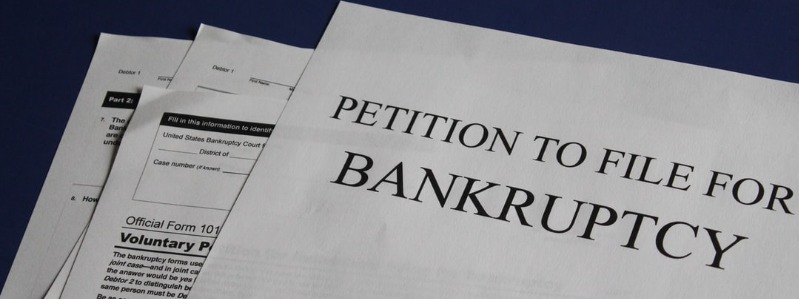While a Chapter 7 Bankruptcy and Chapter 13 Bankruptcy both offer benefits you may only qualify for one type. One chapter will help you save your home if your behind on payments, while the other will completely eliminate most unsecured debt. Choosing between which bankruptcy best suits your situation will depend on your long term and short term goals.
Chapter 13 Bankruptcy Benefits
One of the primary benefits of filing a Chapter 13 Bankruptcy is that it can prevent foreclosure of a house or car repossession. A Chapter 13 Bankruptcy allows you to stop the collection efforts by both secured and unsecured creditors by creating a type of repayment plan. The length of a chapter 13 bankruptcy repayment plan ranges from 36 (3 years) to 60 months (5 years) to pay back your creditors the outstanding delinquency. The bankruptcy plan allows the debtor to spread out payments to get caught up on the property over time and prevents the debtor from having to come up with all the money immediately. Along with the principle benefit of stopping a home foreclosure or the repossession of other types of secured collateral, like a car, a Chapter 13 Bankruptcy can also help eliminate most of your unsecured debt sometimes only paying back 1% of the outstanding balance. When you complete your Chapter 13 Bankruptcy repayment plan, you will be debt free and current on your house and car!
Another major benefit of filing a Chapter 13 Bankruptcy is the 100% protection of your valuable assets from seizure by your creditors. Although Chapter 7 Bankruptcy provides for some protection of your assets through state created “exemptions,” not all of your property may be completely protected from seizure.
Chapter 7 Bankruptcy Benefits
The primary benefit of filing a Chapter 7 Bankruptcy is the elimination of most or all your unsecured debt. The most common types of unsecured debt are credit cards, medical bills, payday loans, and utility bills. These types of debts are completely eliminated. So once your chapter 7 bankruptcy case is discharged you are completely free of these types of debt. However their are limited amounts of exemptions on assets you may protect.
Another primary benefit of Chapter 7 Bankruptcy is the length of time it takes to be discharged. In most cases a chapter 7 bankruptcy case will be discharged in 3 to 6 months. A Chapter 13 Bankruptcy on the other hand is a repayment plan that lasts 36 to 60 months.
Which is Right for You – Chapter 7 or Chapter 13 Bankruptcy?
While the end results of both types of Bankruptcy are similar, some the benefits from each type of Bankruptcy can be very different. In order to determine which type of Bankruptcy you should file or which type of bankruptcy best suits your needs and long term goals you need to seek advice from Bankruptcy Professionals.
Chapter 13 Eligibility
Not everyone qualifies to file a Chapter 13 bankruptcy. The bankruptcy attorney’s at Bankruptcy Professionals can tell you whether you are eligible to file a Chapter 13 case
Residency and Income Requirements
Any individual who has regular income and resides in, is domiciled, or has a place of business or business property located in the U.S. may file Chapter 13 bankruptcy. A corporation, partnership, or other business entity may not file a Chapter 13 bankruptcy.
The Bankruptcy Code defines regular income as income that is sufficiently stable and regular as to allow the debtor to make the payments set forth in his Chapter 13 plan. Income can be from salary or wages, government benefits, alimony and support payments, or any other income received by the debtor on a regular basis including:
- Pension and retirement benefits;
- Royalties and rents;
- Unemployment benefits;
- Commissions from sales or other work;
- Self-employment;
- Proceeds from selling property (especially is selling such property is the debtor’s primary business or source of income); and
- Rental income, including rent received from roommates or borders.
Debt Limitations – To file a Chapter 13 bankruptcy, a debtor may not have liquidated unsecured debts in excess of $336,900. Moreover, a debtor’s secured debts may not exceed $1,015,650.
Disposable Income Requirement – In order to file a Chapter 13 bankruptcy, a debtor must have sufficient disposable income to fund the Chapter 13 plan. This determination involves a number of calculations. First, the debtor’s currently monthly income is calculated by averaging his income from all sources for the six month period before the bankruptcy petition is to be filed. Next, the allowable deductions are subtracted from the current monthly income figure to arrive at the debtor’s current net monthly income. The allowable deductions include:
- Federal and state taxes;
- Social security
- Health insurance;
- Union dues; and
- Other payroll deductions.
Next, the debtor’s expenses are subtracted from the currently net monthly income figure. The difference is known as the monthly net disposable income. If the monthly net disposable income figure is a positive number, the debtor may file a Chapter 13 bankruptcy. Other factors which impact a debtor’s eligibility to file a Chapter 13 bankruptcy include:
- Exactly how must much the monthly net disposable figure is ;
- Whether the majority of the debtor’s debts are secured, priority unsecured, or general unsecured debts;
- The amount owed on the each type of debt;
- The length of the Chapter 13 plan;
- The composition of the Chapter 13 plan;
- Whether the bankruptcy court deems the plan to have been proposed in “good faith”; and
- A variety of other factor which may arise depending on the fact and circumstances of the debtor’s case.
If the monthly net disposable income figure is negative, the debtor is ineligible to file Chapter 13. If a debtor has insufficient disposable income to fund a Chapter 13 plan, he may be eligible to file a Chapter 7 bankruptcy case. However, he would need to speak with a knowledgeable bankruptcy attorney to determine whether he qualifies to file a Chapter 7 case.
Although filing bankruptcy is a complex process, bankruptcy attorneys are are well-versed in all aspects of bankruptcy law with over 20 years of bankruptcy experience. Bankruptcy attorneys are prepared to review your financial situation and advise you of whether you qualify to file a Chapter 13 case.




